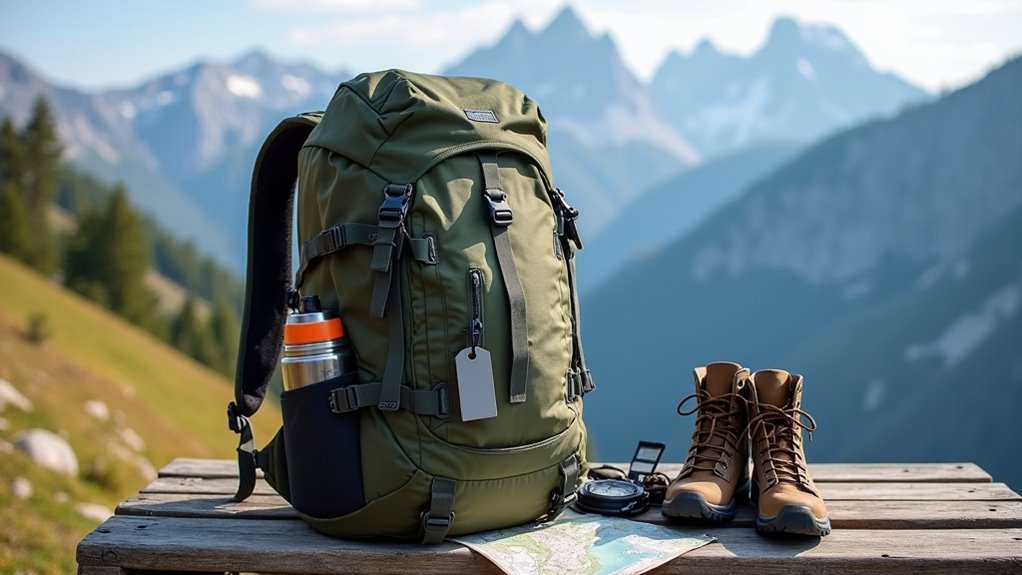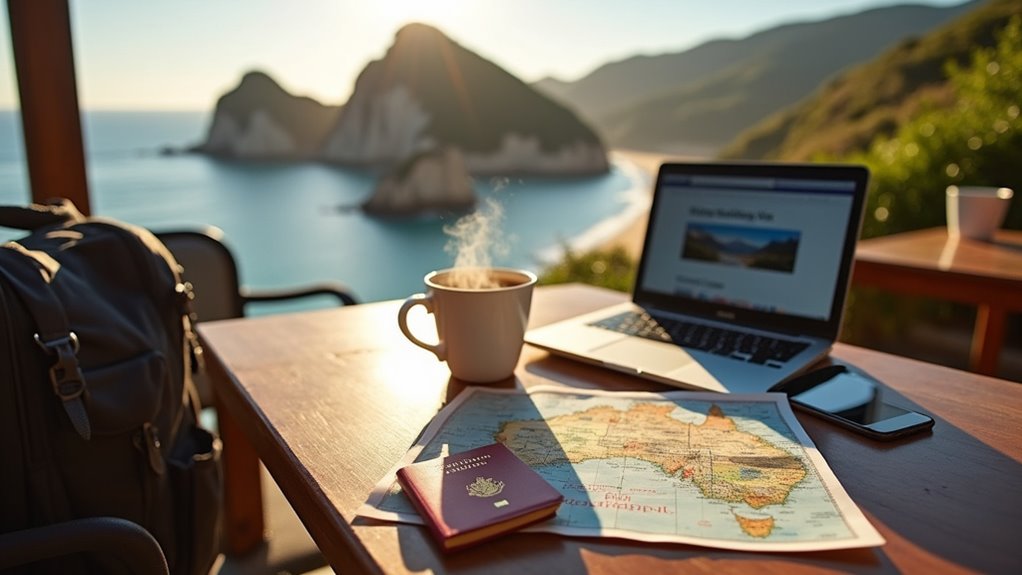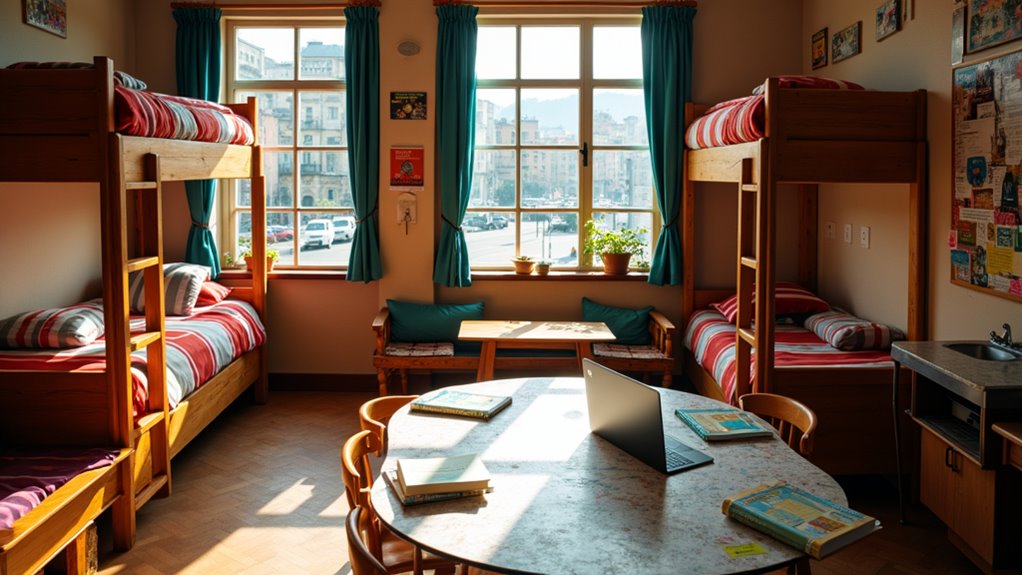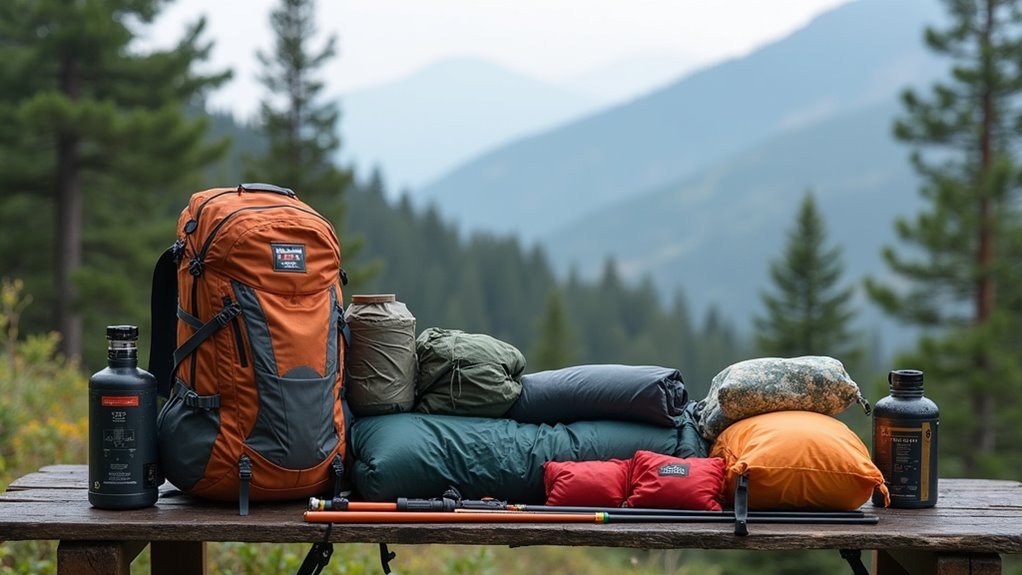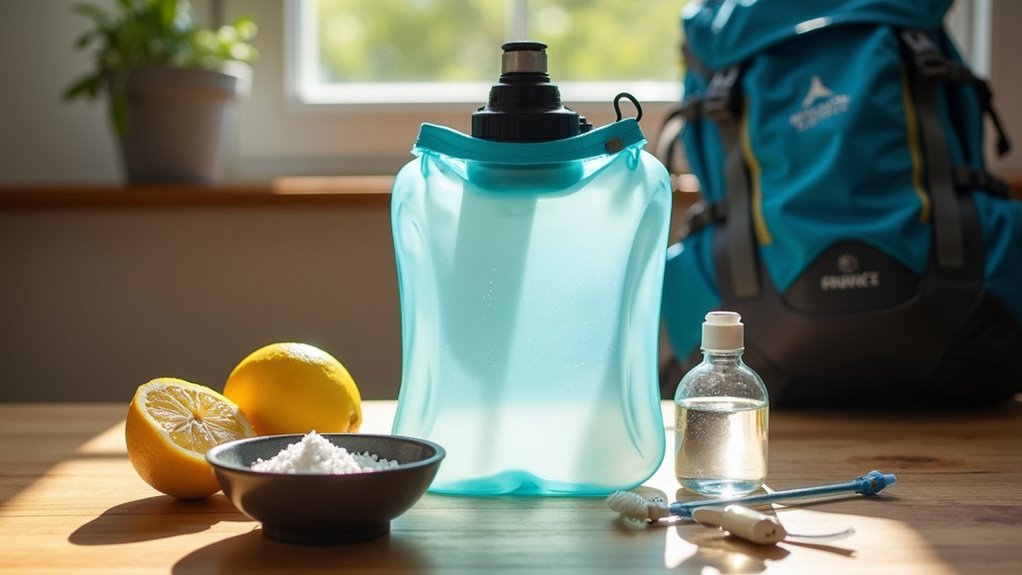To learn basic language skills for backpacker travel, start by mastering essential phrases like greetings, polite expressions, numbers one through ten, and basic directional questions. Use language learning apps, pocket phrasebooks, and online resources for structured practice, setting achievable goals before your trip. Practice speaking with locals or participate in language exchanges, and utilize translation apps for challenging situations. By focusing on daily language immersion and real-world usage, you’ll efficiently prepare to navigate any destination—further steps will deepen your skills.
Whether you’re planning a solo journey through Southeast Asia or joining a group trek across South America, having basic language skills greatly enhances your backpacker experience. Before departure, prioritize learning essential phrases such as basic greetings like “hello,” “goodbye,” “good morning,” and “good evening.” These simple words foster goodwill and open doors in most countries.
Polite expressions, including “please,” “thank you,” “excuse me,” and “sorry,” are essential for respectful interactions. Mastering numbers one through ten allows you to handle basic transactions, such as buying food, booking accommodation, or understanding prices. Learning a foreign language offers a deeper understanding of different cultures and perspectives, giving you the chance to connect more meaningfully with people you meet along the way.
You should familiarize yourself with common questions for directions and locations, such as “where is the bus station?” or “how do I get to the market?” Emergency phrases like “I’m lost,” “I need help,” or “where is the restroom?” are crucial for safety and comfort. To strengthen these basics, spend time learning about the local language’s sentence structure, verb conjugations, and tenses. Building a practical vocabulary around travel, food, and lodgings will support you in everyday situations. Having emergency phrases ready and knowing the local emergency numbers can be essential for your personal safety while traveling.
Before your trip, make use of diverse resources. Online courses, language learning apps like Duolingo, and travel blogs provide structured content. Carry a pocket phrasebook or download a digital dictionary for quick reference. Set realistic language goals for your journey, and, if possible, arrange language exchange conversations with native speakers to gain confidence and improve pronunciation.
Effective communication often requires more than just words. Use visual aids when necessary, and pay close attention to body language, which can vary across cultures. Ask for clarification if you’re unsure of something, and don’t hesitate to speak slowly and clearly.
In challenging situations, translation apps like Google Translate are invaluable, but always try to learn a few key phrases to show effort. For continued progress, immerse yourself in the language daily. Listen to local music, podcasts, or radio, and engage with locals, even briefly.
Join language groups or visit language cafes when available, and maintain consistent practice. These efforts will greatly improve your ability to navigate and connect during your backpacking adventure.

